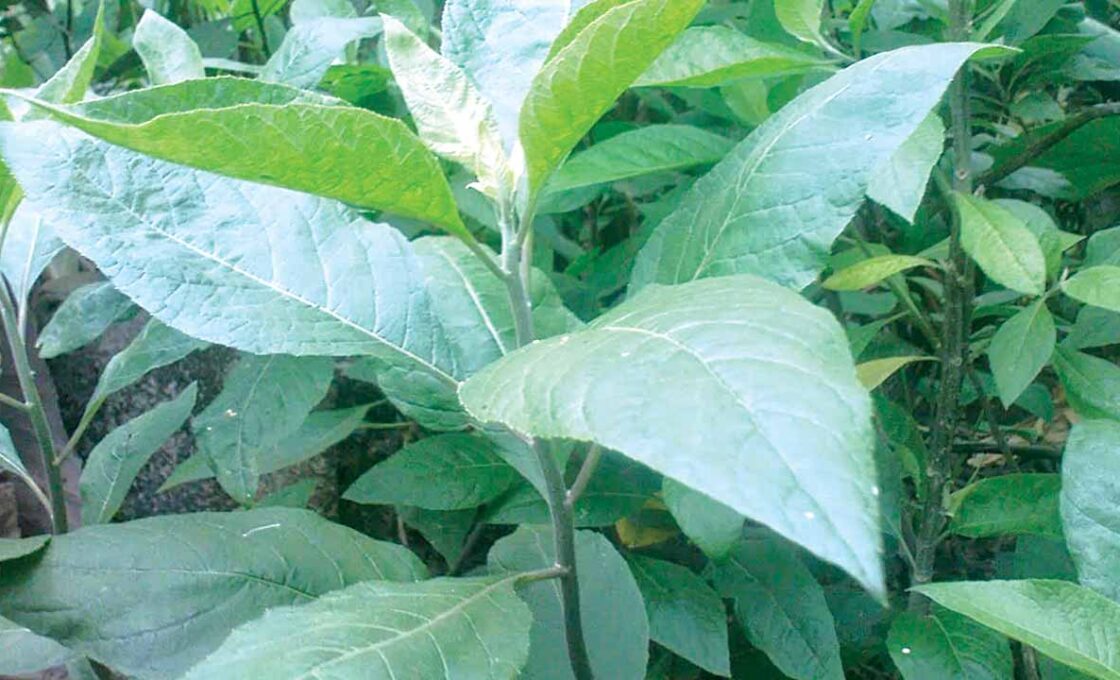The Federal Government has lamented that about 8,000 medicinal plants deposited in Nigeria are yet to be utilized in the area of research,development and value addition,just as it is currently working towards the review of the Nigeria Herbal Pharmacopoeia and the Traditional Medicine Policy.
The Minister of State for Health, Sen. Olorunnibe Mamora,who disclosed this at a press conference to mark African Traditional Medicine Day on Monday in Abuja, added that, the efforts of government in this regard have greatly minimized the negative consequences of the disease on the health and economy of Nigerians.
He explained all these measures are aimed at strengthening our resources for delivery of quality, efficacious and safe traditional medicine products.
He added: “We also have in place an expert committee for the setting up of Traditional, Complementary & Alternative Medicine Institute to serve for the training of professionals in this sector.The series of events in the world during this period of the COVID-19 pandemic calls for the need to look inwards and consider local production of medicines as necessary for national security and attainment of Universal Health Coverage.
“The Federal Ministry of Health on its efforts for local content tasked the National Institute for Pharmaceutical Research & Development (NIPRD) and National Agency for Food and Drug Administration & Control (NAFDAC) to scale up their activities towards the search for a local solution to the pandemic.The Federal Ministry of Health is working in collaboration with international organizations and relevant MDA’s to ensure the discovery of effective remedies against COVID-19 and other diseases from the rich and extensive flora of the country”, he said.
Earlier In his remarks, the Permanent Secretary, Alh Mahmud Mamma,said that about 80% of the population that live in the rural communities utilize traditional medicine.
He also said: “There is therefore the need to look in wards to research and develop our medicinal plants for the benefit of all. The Federal Ministry of Health has intervened in several ways in order to develop, promote and institutionalize traditional medicine.We are also working on the establishment of a wellbeing centre in the Ministry to serve the public. The economic benefit of traditional medicine is the provision of jobs to our unemployed youths in the area of conservation, cultivation and harvesting of medicinal plants. This will help reduce youth restiveness”
Also speaking at the event,the WHO Country Representative, Dr Walter Kazadi Mulombo said WHO remains committed to continue to support the Government of Nigeria in its goal of achieving self-sufficiency in the local production of pharmaceuticals (including Vaccines), traditional medicine and researches.
Mulombo who was represented at the occasion by Dr. Kofi Boateng, EPI Focal Point , Universal Health Coverage(UHC) added that, the listing of 14 herbal medicinal products by NAFDAC against COVID-19 and ongoing clinical trials on them, is in line with the Regional Expert Committee on COVID-19 aim of elevating the standards of clinical trials of traditional medicine for COVID-19.
He further stated that, the ongoing research(s) in the National Institute for Pharmaceutical Research & Development and other higher institutions, highlights the interest of the Government of Nigeria to develop and promote African Traditional Medicines
According to him; “The above are in line with the theme of this year commemoration; The potential contribution of Traditional Medicine to COVID-19 Response .Africa has a long history of traditional medicine and practitioners that play an important role in providing care to populations over the centuries. The African Heads of State in 2001, declared traditional medicine research a priority and subsequently designated the next 10 years as decade of African Traditional Medicine which was extended to the year 2020.
“For the past 20 years, countries in the WHO African Regional Office have marked the African Traditional Medicine Day on 31st of August each year. WHO advocate for strengthening the linkage between traditional medicine and institutionalized care in line with the WHO strategy.We are still battling the COVID-19 pandemic. WHO recognizes that traditional, complementary and alternative medicine has many benefits when properly harnessed with. Therefore, researches into our traditional medicines is an effort in the right direction

